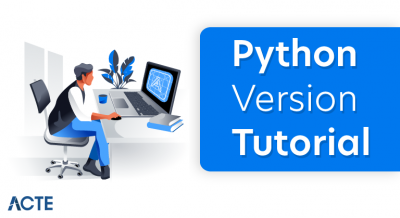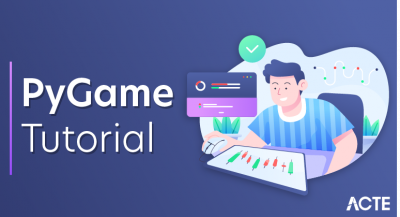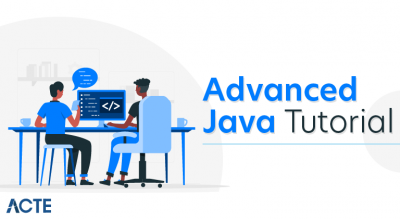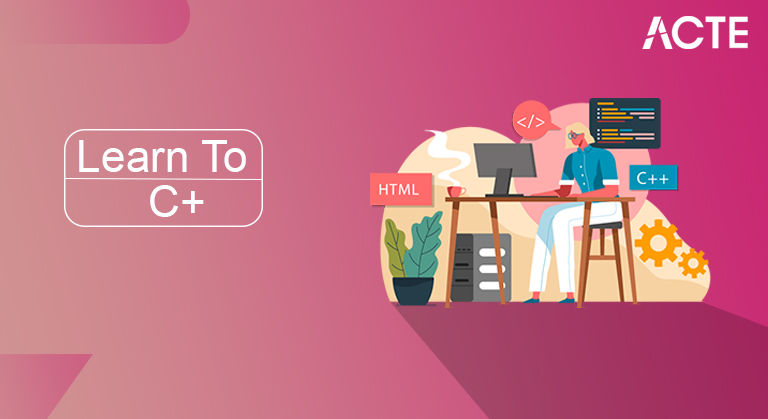
- Introduction to C#
- History of C#
- The First Step
- What is C#
- Why to Learn C#?
- Applications of C Sharp Programming
- Prerequisites for learning C#
- Advantages of Programming in C#
- Disadvantages of Programming in C#
- The Future of the C# Programming Language
- C# Data Types
- Main Features of C#
- C# – Static Class, Methods, Constructors, Fields
- C# Keywords
- Conclusion
- During the advancement of the .NET Framework, the class libraries were initially composed utilizing an overseen code compiler framework called “Basic Managed C” (SMC). In January 1999, Anders Hejlsberg shaped a group to fabricate another dialect at the time called Cool, which meant “C-like Object-Oriented Language”. Microsoft had thought about keeping the name “Cool” as the last name of the language, yet decided not to do as such for brand name reasons. When the .NET undertaking was freely declared at the July 2000 Professional Developers Conference, the language had been renamed C#, and the class libraries and ASP.NET runtime had been ported to C#.
- Hejlsberg is C#’s key creator and lead designer at Microsoft and was recently engaged with the plan of Turbo Pascal, Embarcadero Delphi (previously CodeGear Delphi, Inprise Delphi, and Borland Delphi), and Visual J++. In meetings and specialized papers, he has expressed that flaws in most significant programming dialects (for example C++, Java, Delphi, and Smalltalk) drove the basics of the Common Language Runtime (CLR), which, thusly, drove the plan of the C# language itself.
- James Gosling, who made the Java programming language in 1994, and Bill Joy, a prime supporter of Sun Microsystems, the originator of Java, considered C# an “impersonation” of Java; Gosling further said that “[C# is] kind of Java with dependability, usefulness, and security deleted.” Klaus Kreft and Angelika Langer (writers of a C++ streams book) expressed in a blog entry that “Java and C# are practically indistinguishable programming dialects. Exhausting reiteration that needs innovation,” “Barely anyone will guarantee that Java or C# are progressive programming dialects that changed how we compose projects,” and “C# acquired a ton from Java – as well as the other way around. Since C# upholds boxing and unpacking, we’ll have a very much like component in Java.” In July 2000, Hejlsberg said that C# is “not a Java clone” and is “a lot nearer to C++” in its design.
- Since the arrival of C# 2.0 in November 2005, the C# and Java dialects have developed in progressively dissimilar directions, becoming two very various dialects. One of the principal significant takeoffs accompanied the expansion of generics to the two dialects, with boundlessly various executions. C# utilizes reification to give “top of the line” conventional articles that can be utilized like some other class, with code age performed at the class-load time. Furthermore, C# has added a few significant highlights to oblige practical style programming, coming full circle in the LINQ expansions delivered with C# 3.0 and its supporting structure of lambda articulations, augmentation strategies, and mysterious types. These elements empower C# software engineers to utilize utilitarian programming methods, for example, terminations, when it is worthwhile to their application. The LINQ expansions and the practical imports assist engineers with lessening how much standard code is remembered for normal errands like questioning a data set, parsing an XML document, or looking through an information structure, moving the accentuation onto the real program rationale to assist with further developing lucidness and maintainability.
- The current book on programming rudiments is only the initial phase in building the abilities of a developer. Assuming you had the option to tackle all issues, this implies you have acquired significant information in the programming standards with C# on a fundamental level. You are going to begin top to bottom contemplating of programming, foster your algorithmic reasoning, and afterward add innovative information in regards to the C# language and the .NET biological system (.NET Framework, .NET Core, Entity Framework, ASP.NET, and so forth), front-end advances (HTML, CSS, JavaScript) and numerous different ideas, advances and instruments for programming improvement.
- If you couldn’t take care of all issues or a huge piece of them, return and address them! Recollect that turning into a developer requires a great deal of work and exertion. This calling isn’t so much for languid individuals. It is impossible to learn it except if you genuinely work on programming for quite a long time!
- As we previously clarified, the first and essential ability of a software engineer is to figure out how to compose code easily and joyfully. This is specifically the mission of this book: to show you how to code. We suggest you, other than perusing the book, sign up for the reasonable course “Programming Basics” at SoftUni, which is presented free of charge, in an on-location or online organization of preparing.
- Window applications
- Web applications
- Circulated applications
- Web administration applications
- Data set applications and so on
- C# is supported as a norm by ECMA and ISO.
- C# is intended for CLI (Common Language Infrastructure).
- CLI is a determination that depicts executable code and runtime climate.
- C# programming language is affected by C++, Java, Eiffel, Modula-3, Pascal, and so forth dialects.
- There are many benefits of programming in C#. All things considered, the language would not be however famous as it seems to be without reason. First of all, the language is somewhat simple to realize when contrasted with different dialects in a similar class. While not generally so straightforward as Python or Perl, it has an extremely low expectation to absorb information, making it ideal for fledglings or prepared software engineers hoping to add one more language to their designer toolbox.
- One more benefit of figuring out how to code in C# is how effective the language is. As a statically composed language, C# is not difficult to peruse and comprehend, making it simpler to track down mistakes in code (yours or another designer’s) and comprehend the code you are perusing. It likewise makes it simple to compose code by and large, with reusable code being an essential component of C#.
- Part of that simplicity of perusing and coding comes from the way that C# is an Object-Oriented Programming (OOP) language. This makes it profoundly proficient, adaptable, versatile, and simple to keep up with.
- One more extraordinary element of C# is its local area. There are a ton of engineers that utilization C# thus observing help or dealing with any consequences regarding questions isn’t so difficult as it very well maybe with a lesser language. This huge local area additionally guarantees the proceeded with presence – and use – of the language, so you don’t need to stress over it vanishing at any point shortly. This is proven by its ceaseless positioning in the main ten of records like TIOBE, connected previously.
- This equivalent incredible local area likewise intends that there are a lot of C# engineer responsibilities to be had. That pattern doesn’t appear to be easing back a lot, however, there is tough opposition from the existences of Java, Python, and C.
- Like any programming language, C# isn’t without its shortcomings. A ton of the issues programmers have with C# involve individual inclination, for example, issues with it being so vigorously Object-situated. Others view C# as a little weighty and severe as far as coding guidelines and best practices, regularly griping of not having the option to “stream” or be as adaptable in their coding styles as they would like.
- C# was likewise dependent on the .NET system generally previously, and applications that worked with the programming language were planned for that stage or to run in a Windows climate. This made you a little restricted in your market reach somehow or another and can switch off certain organizations that need a more financially savvy arrangement, for example, having applications that are not OS-subordinate. C# presently runs on Mac and Linux also, so this is as of now not such an issue.
- One more grumbling with regards to C# is that it tends to be delayed to stack – any progressions to your C# code will expect you to recompile, which can be somewhat of a channel.
- Pointers are absent in C#.
- Perilous activities, for example, direct memory control are not permitted.
- In C# there is no utilization of “::” or “- >” administrators.
- Since it’s on .NET, it acquires the highlights of programmed memory the board, and trash assortment.
- Fluctuating scopes of the crude kinds like Integer, Floats, Etc.
- The whole number upsides of 0 and 1 are not generally acknowledged as boolean qualities. Boolean qualities are unadulterated valid or bogus qualities in C# so no more blunders of “=”operator and “=” administrator.
- “==” is utilized for correlation activity and “=” is utilized for task activity.
- In C# we can’t perform perilous projects like changing twofold over to a boolean. Esteem types (crude sorts) are introduced to zeros and reference types (articles and classes) are instated to invalid by the compiler consequently.
- clusters are zero bases listed and are bound checked.
- Flood of types can be checked.
- C# incorporates local help for the COM and windows based applications.
- Permitting confined utilization of local pointers.
- Clients never again need to unequivocally carry out the obscure and other COM interfacers, those elements are underlying.
- C# permits the clients to involve pointers as risky code squares to control their old code.
- Parts from VB NET and other oversaw code dialects and straightforwardly be utilized in C#.
- .NET has presented gatherings that are self-portraying using their manifest. the manifest builds up the gathering character, adaptation, culture advanced mark, and so on Congregations need not be enrolled anyplace.
- To scale our application we erase the old documents and update them with new ones. No enlisting of the dynamic connecting library.
- Refreshing programming parts are a blunder-inclined errand. Modifications were made to the code. can influence the current program C# support forming in the language. Local help for connection points and technique superseding empower complex systems to be created and developed.
- In C#, static means something which can’t be fired up. You can’t make an object of a static class and can’t get too static people using an article.
- C# classes, factors, procedures, properties, heads, events, and constructors can be portrayed as static using the static modifier watchword.
- Modifier watchwords
- unique
- async
- const
- occasion
- extern
- new
- Access ModifiersUsage
- public
- private
- inside
- ensured
- Proclamation Keywords
- Proclamation catchphrases are connected with the program stream.
- Proclamation Keywords
- if
- else
- switch
- case
- do
- for
- Technique Parameter Keywords
- params
- ref
- out
- Namespace Keywords
- utilizing. administrator
- :: administrator
- extern nom de plume
Introduction to C#:
C# tutorial gives fundamental and progressed ideas of C#. Our C# tutorial is intended for fledglings and experts. Our C# tutorial incorporates all subjects of C# like the principal model, control articulations, items and classes, legacy, constructor, destructor, this, static, fixed, polymorphism, deliberation, conceptual class, interface, namespace, exemplification, properties, indexer, clusters, strings, regex, exemption taking care of, multithreading, File IO, Collections, and so forth
C# is a straightforward, current, broadly useful, object-arranged programming language created by Microsoft inside its .NET drive drove by Anders Hejlsberg. This tutorial will show you fundamental C# programming and will likewise take you through different progressed ideas connected with the C# programming language.
Hello world
In the Hello world tutorial, you’ll make the most fundamental C# program. You’ll investigate the string type and how to function with text. You can likewise utilize the way on Microsoft Learn or Jupyter on Binder.
Numbers in C#
In the Numbers in C# tutorial, you’ll figure out how PCs store numbers and how to perform computations with various numeric sorts. You’ll gain proficiency with the essentials of adjusting, and how to perform numerical computations utilizing C#. This tutorial is additionally accessible to run locally on your machine. This tutorial expects that you’ve completed the Hello world example.
Branches and circles
The Branches and circles tutorial shows the essentials of choosing various ways of code execution in light of the qualities put away in factors. You’ll get familiar with the nuts and bolts of the control stream, which is the premise of how projects simply decide and pick various activities. This tutorial is additionally accessible to run locally on your machine. This tutorial expects that you’ve completed the Hello world and Numbers in C# examples.
List assortment
The List assortment example provides you with a visit through the List assortment type that stores arrangements of information. You’ll figure out how to add and eliminate things, look for things, and sort the rundowns. You’ll investigate various types of records. This tutorial is additionally accessible to run locally on your machine. This tutorial expects that you’ve completed the examples recorded previously.
01 Linq Samples
This example requires the dotnet-attempt worldwide apparatus. When you introduce the apparatus and clone the attempt tests repo, you can learn Language Integrated Query (LINQ) through a bunch of 101 examples you can run intuitively. You can investigate various ways of questioning, investigating, and changing information arrangements.
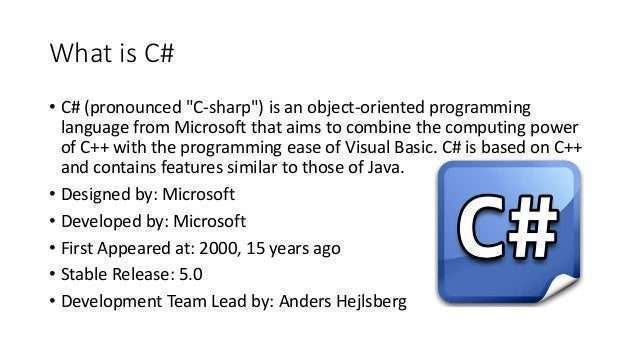
History of C#
The First Step
What is C#
C# is articulated as “C-Sharp”. It is an article situated programming language given by Microsoft that sudden spikes in demand for .Net Framework. With the assistance of C# programming language, we can foster various sorts of gotten and hearty applications:
Why to Learn C#?
Learning C# assists with understanding the fundamental Computer hypotheses effectively, and it is a center-level programming language; in this way, it is easy to use. Besides, C# contains fewer libraries, and it has a quicker execution time; subsequently, it is broadly utilized in inserted programming.
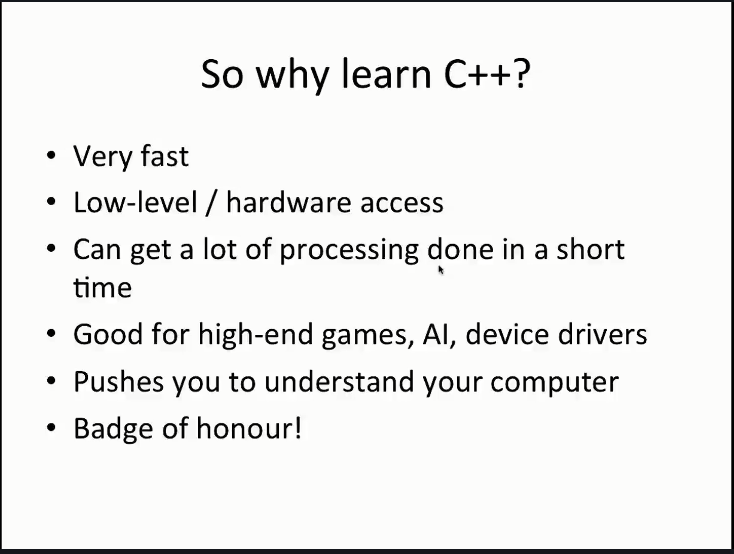
Applications of C Sharp Programming
C Sharp writing computer programs is broadly utilized for creating Desktop applications, Web applications, Web administrations, huge scope Windows applications just as creating Games.
Prerequisites for learning C#
For learning C# for amateurs, it is needed to have a piece of fundamental PC information, essential information on the Object-Oriented programming approach, and essential information on C programming language ideas to comprehend C# rudiments without any problem.
Advantages of Programming in C#
Disadvantages of Programming in C#
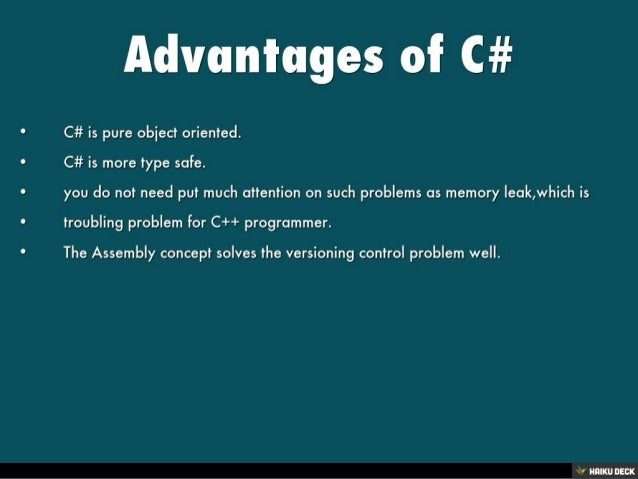
The Future of the C# Programming Language
While C# isn’t the most broadly utilized language on earth, it partakes in a gigantic fan base that has become reliably throughout recent years. There are signs that the development of the language has slowed down to some degree, yet it has not shown a genuine decrease and is the most grounded language in the .NET system weapons store.
C# Data Types
An information type determines the sort of information that a variable can store like the whole number, drifting, character, and so on.
Esteem Data Type
The worth information types are the whole number-based and drifting point-based. C# language upholds both marked and unsigned exacting.
There are 2 kinds of significant worth information types in C# language.
1) Predefined Data Types – like Integer, Boolean, Float, and so on
2) User-characterized Data Types – like Structure, Enumerations, and so forth
The memory size of information types might change as indicated by the 32 or 64-digit working framework.
Reference Data Type
The reference information types don’t contain the genuine information put away in a variable, yet they contain a reference to the factors. Assuming the information is changed by one of the factors, the other variable consequently mirrors this adjustment of significant worth.
Pointer Data Type
The pointer in C# language is a variable, it is otherwise called a finder or marker that focuses on a location of a worth.
Main Features of C#
1. Basic
2. Current
C# has been based on the latest thing and is exceptionally strong and straightforward for building interoperable, adaptable, vigorous applications. C# incorporates worked in helping to transform any part into a web administration that can be conjured over the web from any application running on any stage
3. Object-Oriented
C# upholds Data Encapsulation, legacy, polymorphism, interfaces. (int, float, twofold) are not objects in java yet C# has presented structures(structs) that empower the crude kinds to become objects.
4. Typesafe
5. Interoperability
6. Adaptable and updatable
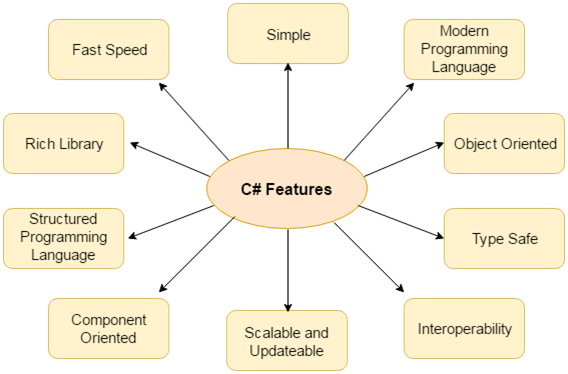
C# – Static Class, Methods, Constructors, Fields
Static Class
Apply the static modifier before the class name and after the entry modifier to make a class static. The going with describes a static class with static fields and methods.
C# Keywords
C# contains held words that have unique significance for the compiler. These held words are designated “watchwords”. Watchwords can’t be utilized as an identifier (name of a variable, class, interface, and so forth) Watchwords in C# are appropriated under the accompanying classes:
Modifier Keywords
Modifier watchwords are explicit catchphrases that demonstrate who can adjust types and type individuals. Modifiers permit or keep specific pieces of projects from being altered by different parts.
Access Modifier Keywords:
Access modifiers are applied to the presentation of the class, technique, properties, fields, and different individuals. They characterize the openness of the class and its individuals.
Technique Parameter Keywords
These watchwords are applied to the boundaries of a strategy.
Namespace Keywords
These watchwords are applied with namespace and related administrators.
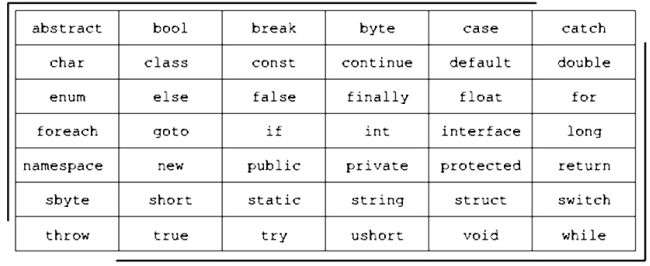
Conclusion
C# is a cutting-edge, type-safe programming language, object-arranged language that empowers software engineers to rapidly and effectively assemble answers for the Microsoft .NET stage.


